1066 (24 page)
Authors: Andrew Bridgeford

Such general considerations are hardly much of an advance on the matter. What we need is some more precise clue that the
Chanson de Roland
was composed or at least adapted by a poet working in Ponthieu. There is at least one such clue. Among several holy relics mentioned by the poet, one stands out in particular. So important is it that Charlemagne (Charles) has it embedded in the pommel of his sword:
We could speak for a long time about the lance
With which our Lord was wounded on the cross.
Charles has its point, thanks be to God,
Which he has mounted in his golden pommel.
39
The reference here is to the lance of the Roman centurion that pierced the side of Jesus as he lay hanging on the cross.
40
It is Charlemagne's ownership, 'thanks be to God', of the tip of the Holy Lance that gives his soldiers their assured sense of destiny, that they have a joyous and heavenly future which their unquestioned faith held was open to them as a result of the suffering and death of Jesus on the cross. The point of the Holy Lance is embedded in the sword of Charlemagne;the sword is thus named
Joyeuse,
'the Joyful'; and it is from the name of the sword
Joyeuse
that seems to have been taken the battle cry that the poet puts into the mouths of Charlemagne's knights,
Monjoie,
'My Joy'. The Holy Lance thus stands at the centre of a group of related concepts of great mystical significance to the poet.
41
And it turns out to be of the greatest interest in our quest to link the tapestry's Turold with the authorship of the poem. We must, therefore, narrow our focus on to this question.
The
Chanson de Roland
tells us that the point of the Holy Lance belonged to Charlemagne. The only place in the whole of eleventh-century France where a similar story has been found is the abbey of Saint-Riquier, the chief monastic centre of Ponthieu. The abbey of Saint-Riquier, it will be recalled, lies only a few miles from Count Guy's capital of Abbeville, in other words, only a short distance from where the dwarf-
jongleur
Turold would have composed and sung his songs. The Saint-Riquier story is given to us by Hariulf, the monk who completed his chronicle of Saint-Riquier in large part by 1088. Hariulf's interest in the matter arose because the precious lancepoint had, for several decades during the ninth century, been a prized possession of his own abbey. He tells us that Louis the Pious, son and successor to Charlemagne, gave the abbey a large number of holy relics, the most precious of which was 'the point of the lance with which a soldier pierced the side of that divine Master who died for our salvation (it is this wound which gives rise to the sacraments of the church)'.
42
Hariulf did not know how the biblical lancepoint had come into Louis' possession. He merely reported that 'it is said' that Louis had acquired this relic on a visit to Constantinople. However, no such visit is known, and a later account states that Charlemagne himself had given the relic to the abbey of Saint-Riquier. Within some fifty years or so, however, the abbey of Saint-Riquier lost it. Around the year 880, under imminent danger of Viking pillage, it was moved for safe keeping to the town of Sens and it was never returned and has subsequently disappeared.
43
Despite this relic being associated by Hariulf with Charle-magne's son Louis, rather than directly with the emperor, Hariulf's story remains of the greatest interest in our quest. There is no other contemporary report which so closely parallels what we read in the
Roland.
Both speak specifically of the point of the Holy Lance. Both say that the family of Charlemagne owned it. In the words of one scholar who investigated the matter in detail, the tradition found at Saint-Riquier and the similar story in the poem 'can hardly be unrelated'.
44
From this it seems distinctly possible that the poet of the
Chanson de Roland
was working within earshot of the traditions preserved at the abbey of Saint-Riquier and thus that he might well have been working in Abbeville as Count Guy of Ponthieu's
jongleur.
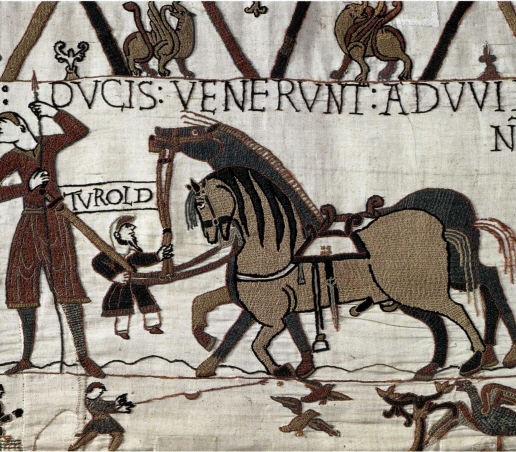
1 Turold
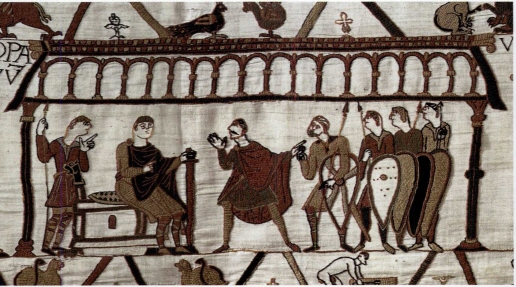
2 The meeting between
Duke William and
Earl Harold
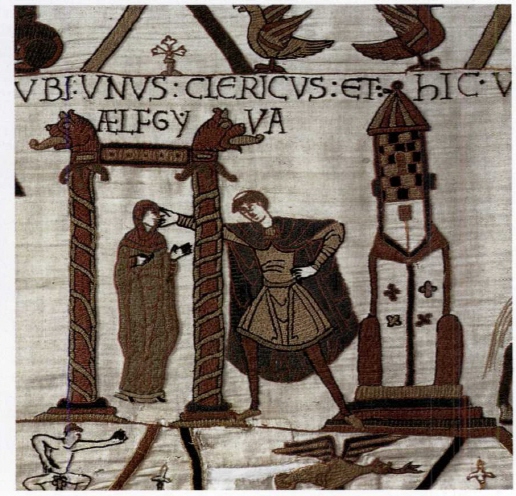
3 'Where a priest
and Ælfgyva'
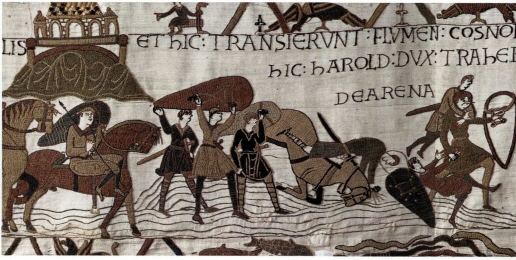
4 Mont-Saint-Michel and the crossing of the sands
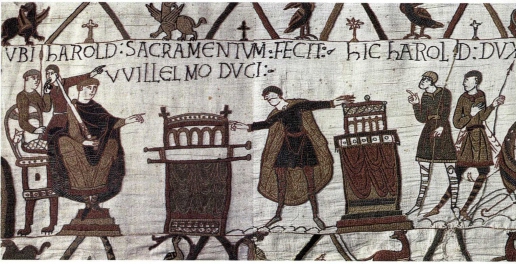
5 Harold's oath to Duke William
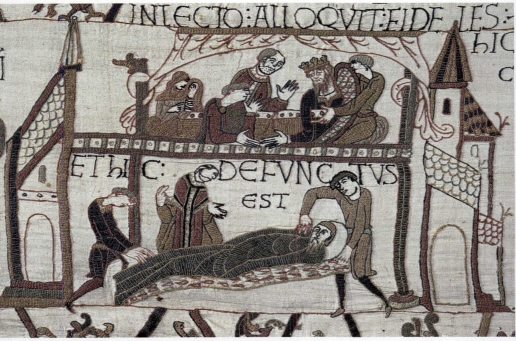
6 King Edward's
last bequest

7 Bishop Odo of Bayeux
presides over a banquet
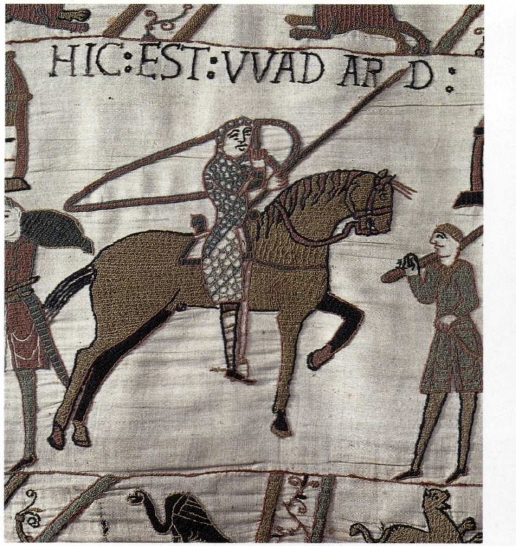
8 Wadard
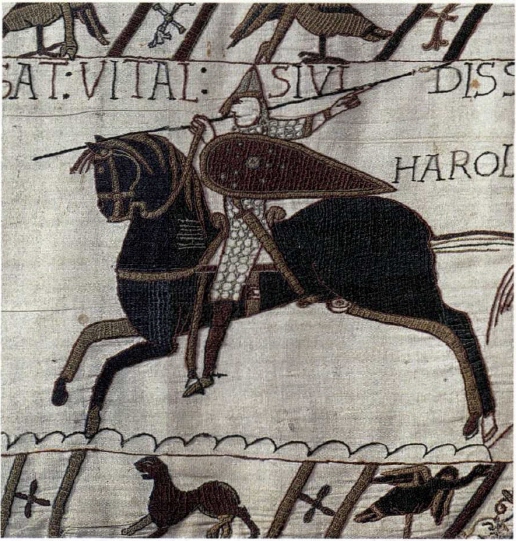
9 Vital

